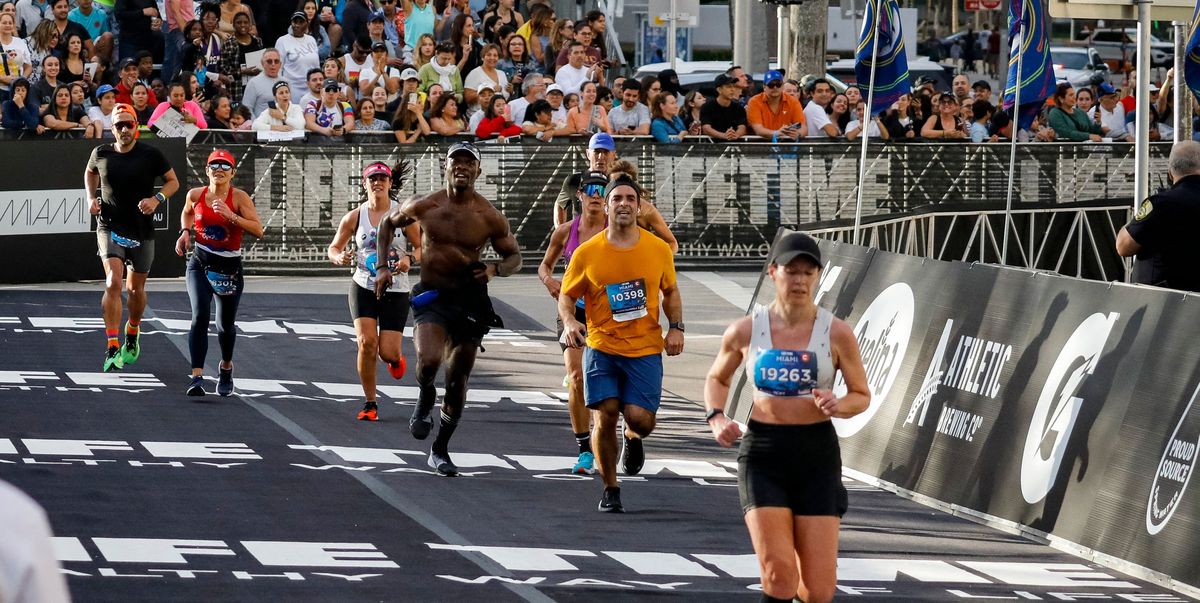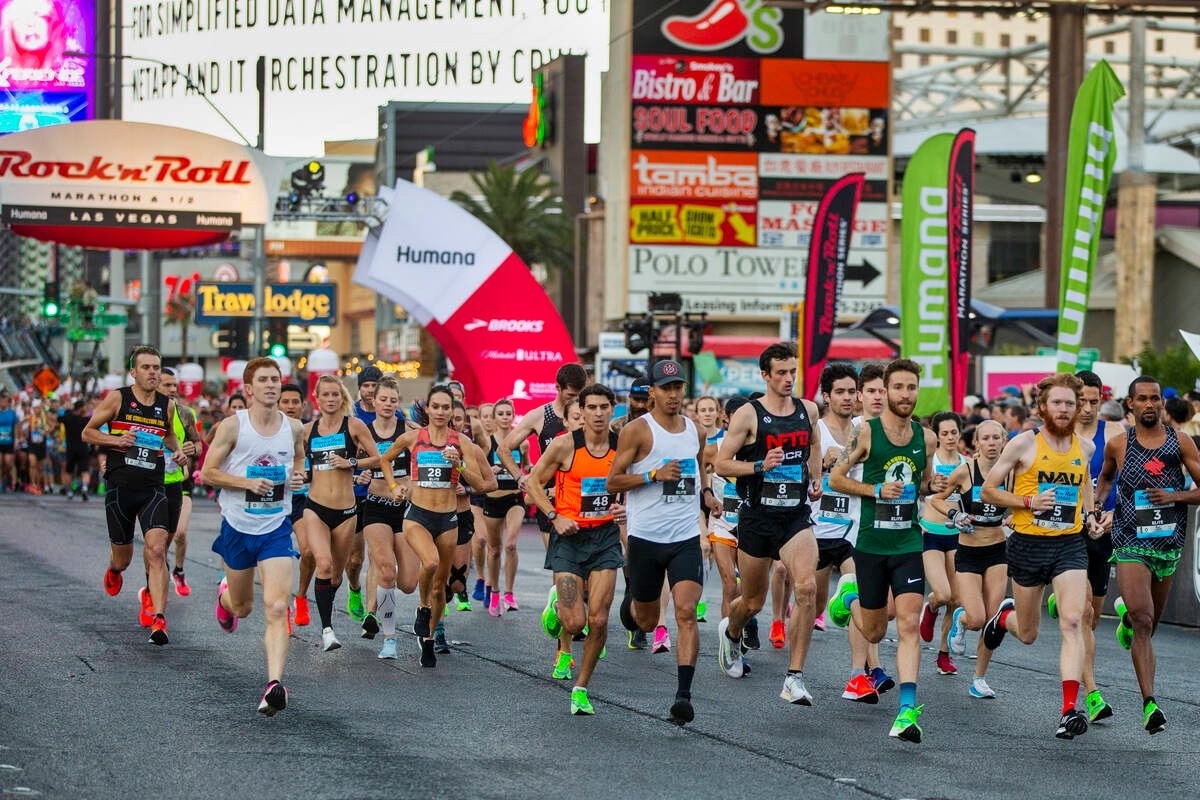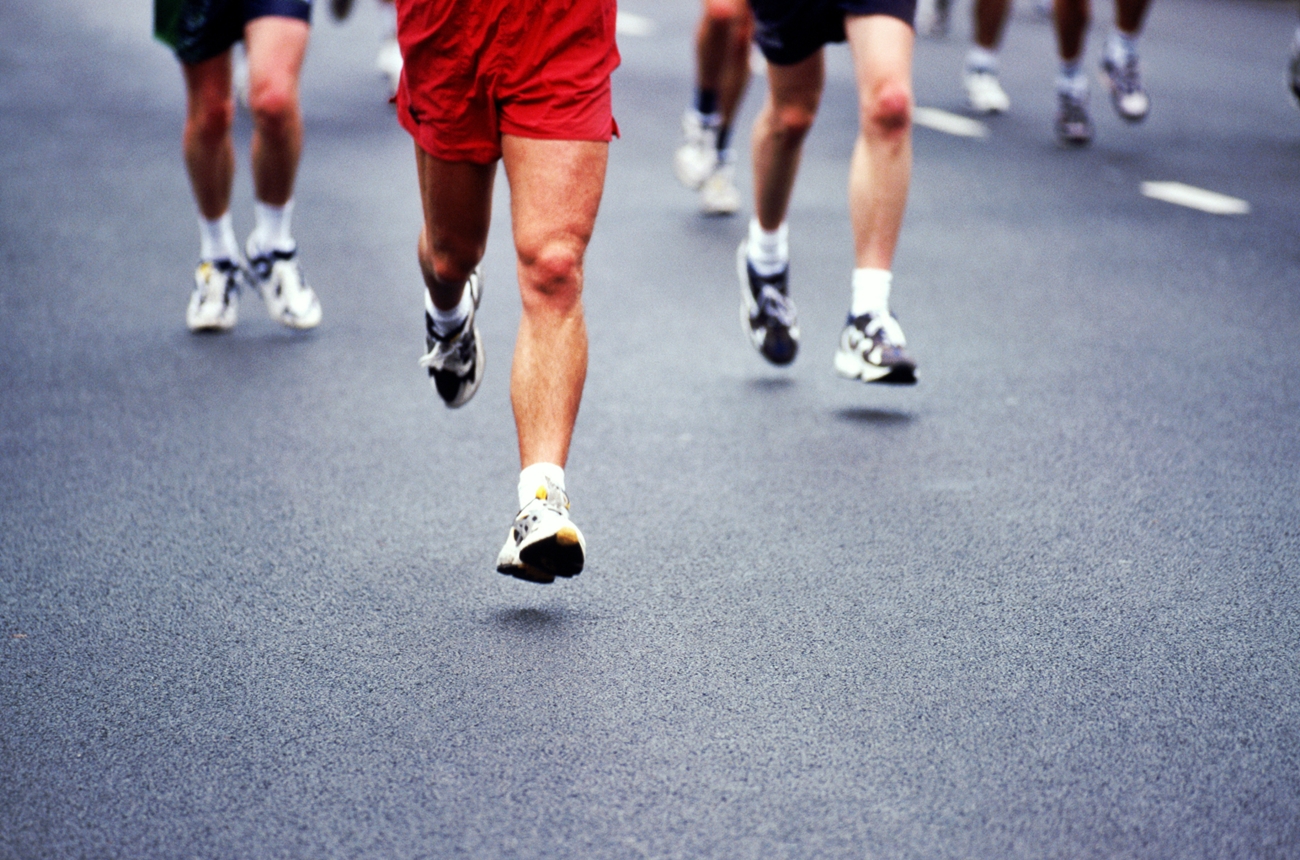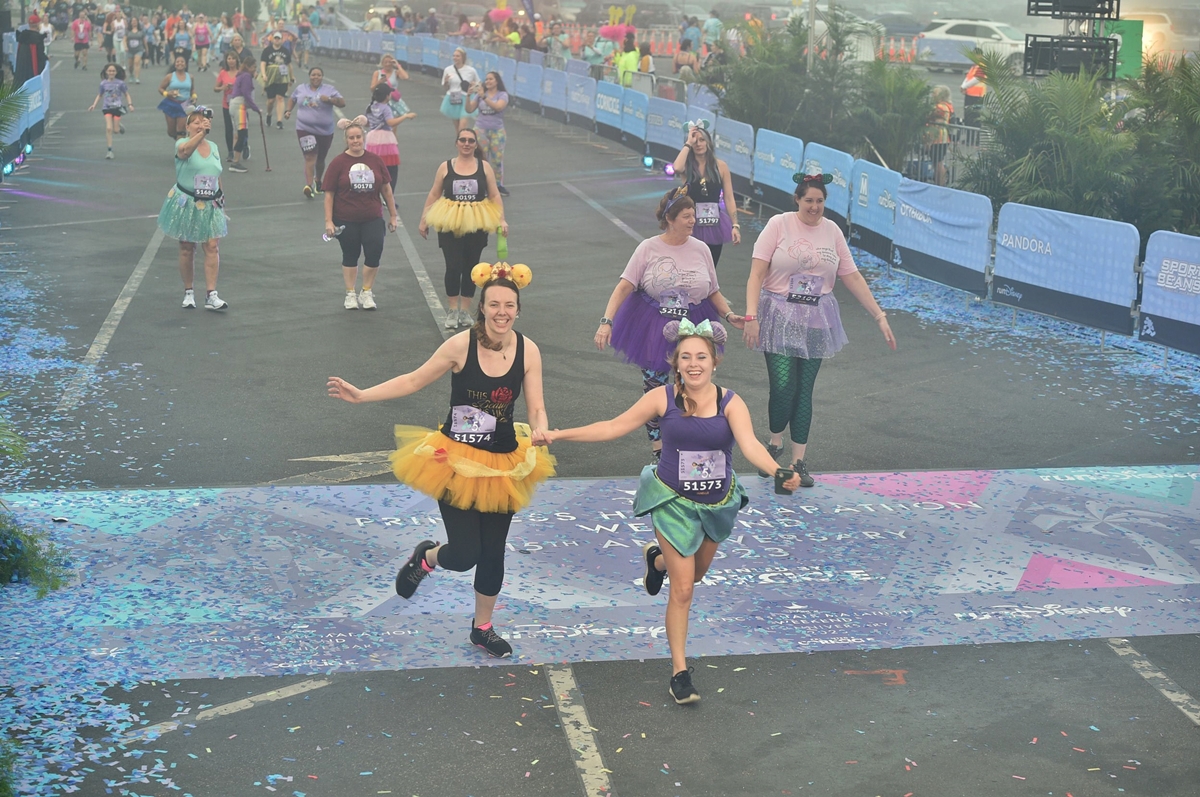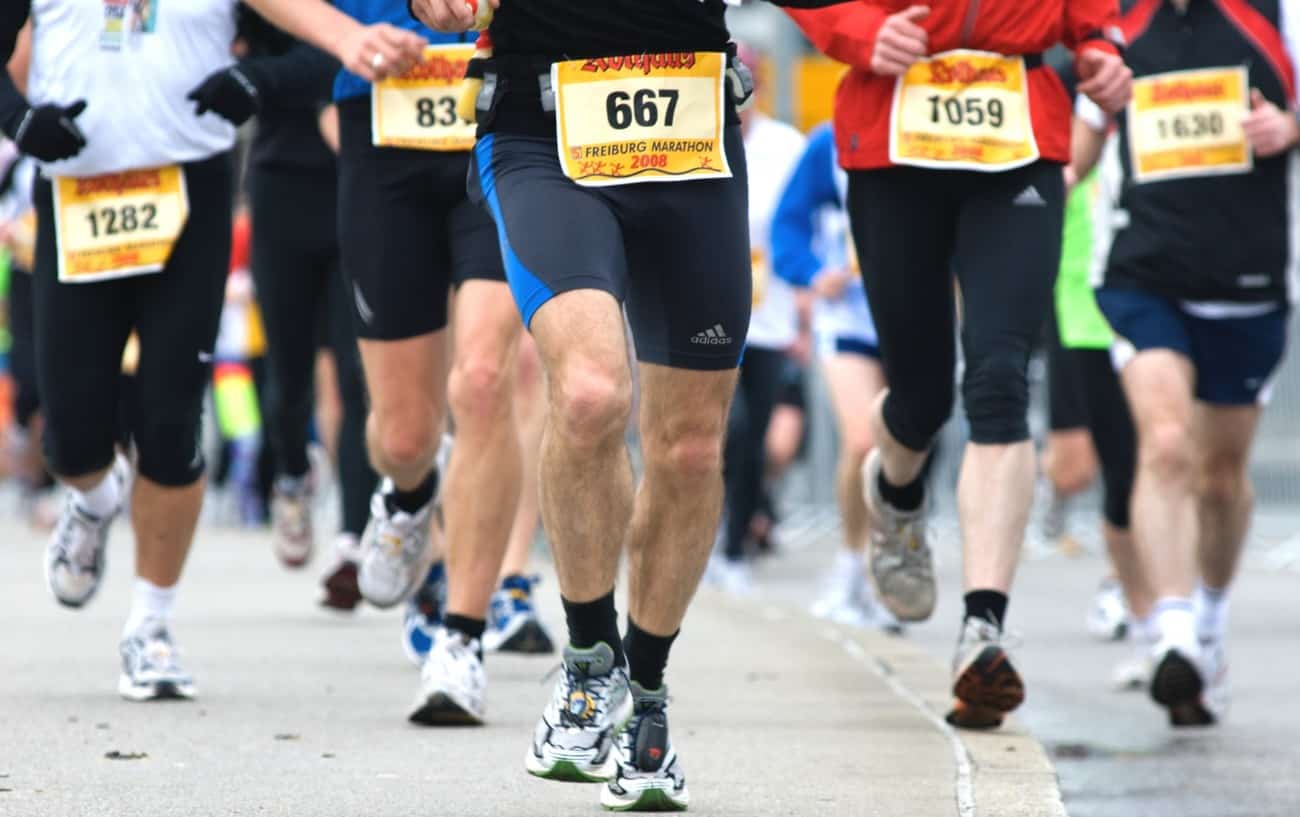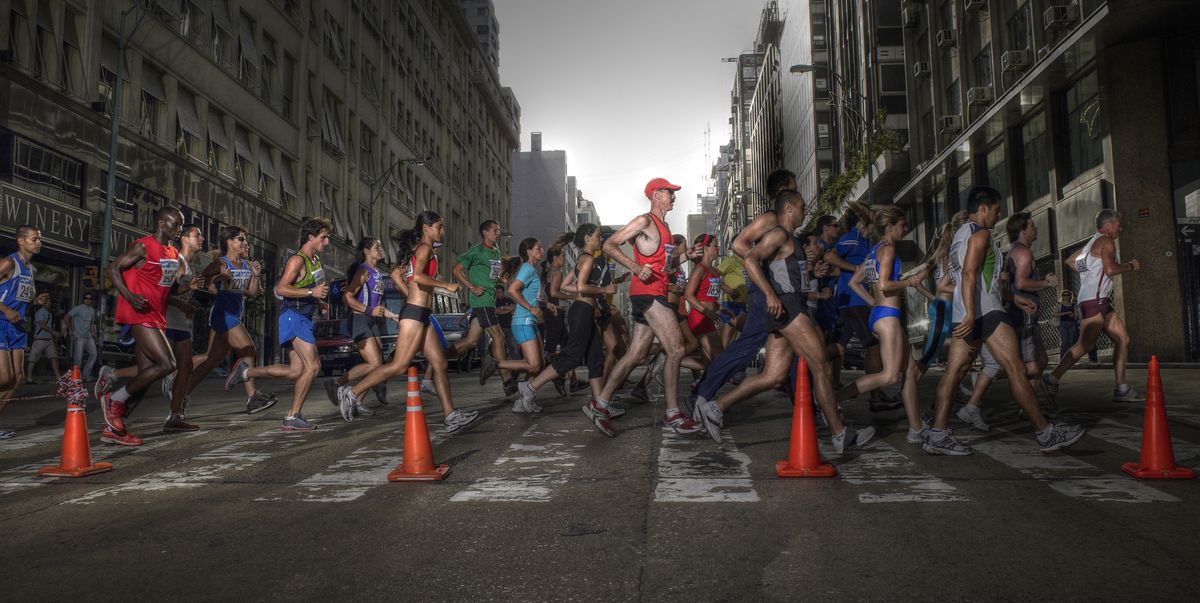Home>Misc>Featured>What Is An Average Time For A Half Marathon


Featured
What Is An Average Time For A Half Marathon
Modified: January 22, 2024
Discover the average time for a half marathon and find out why it is a featured distance among runners. Reach your fitness goals with our expert tips and guidance.
Introduction
Half marathons have become increasingly popular in recent years, attracting seasoned runners and beginners alike. Whether you are a fitness enthusiast looking to challenge yourself or someone who enjoys the thrill of participating in races, the half marathon offers a perfect balance between endurance and achievement.
But what exactly is a half marathon? How do you train for it? And what factors can affect your half marathon time? In this article, we will explore the ins and outs of half marathons, from understanding what they are to discussing average times and how to improve your performance.
A half marathon is a road race that covers a distance of 13.1 miles or 21.0975 kilometers. It is half the distance of a full marathon, hence the name. The half marathon distance provides a unique challenge for runners, requiring a combination of speed and stamina.
Training for a half marathon involves a structured and progressive workout plan. It is important to gradually build your endurance, incorporating long runs, speed workouts, and rest days into your training schedule. The duration of training can vary depending on your fitness level and experience, ranging from 8-16 weeks.
There are several factors that can affect your half marathon time. These include your fitness level, previous running experience, age, gender, and even the weather conditions on race day. Understanding these factors can help you set realistic goals and tailor your training accordingly.
So, what is the average time for a half marathon? The average time for completing a half marathon can vary greatly depending on various factors such as age, fitness level, and race conditions. However, the average time for a half marathon is around 2 hours and 5 minutes for men and 2 hours and 20 minutes for women.
If you’re aiming to improve your half marathon time, there are several strategies and tips that can help you achieve your goals. From proper nutrition and hydration to incorporating interval training and strength exercises, we will provide you with practical advice to enhance your performance.
Whether you’re a seasoned runner looking to set a new personal record or a beginner taking on your first half marathon, this article will provide you with the necessary information to understand and optimize your half marathon experience. Grab your running shoes, set your goals, and let’s dive into the world of half marathons!
What is a Half Marathon?
A half marathon is a challenging road race that covers a distance of 13.1 miles or 21.0975 kilometers. It is a popular choice for many runners as it offers a significant challenge without the extreme distance of a full marathon. As the name suggests, a half marathon is exactly half the distance of a full marathon, making it accessible to a wide range of runners, from beginners to seasoned professionals.
Half marathons are typically organized as standalone events, but they can also be a part of larger races or running festivals. These races attract a diverse group of participants, including elite athletes, recreational runners, charity fundraisers, and individuals looking to challenge themselves.
The course for a half marathon is usually on roads, and it can vary in terrain and elevation. Some courses are flat and fast, while others may have challenging hills or uneven surfaces. The route may take runners through scenic landscapes, urban areas, or a combination of both. Each race has its own unique course, providing runners with a memorable experience.
Half marathons are not only physically demanding but also mentally challenging. The distance requires a fine balance between endurance and speed. Runners need to pace themselves effectively to maintain a steady speed throughout the race and ensure they have enough energy to finish strong.
In addition to the physical and mental aspects, half marathons also foster a sense of community and camaraderie among participants. The atmosphere at these races is electric, with spectators cheering on the runners, volunteers providing support and hydration along the way, and fellow runners encouraging each other to push through the miles.
Participating in a half marathon is not just about the race day itself; it is a journey that begins with training. To prepare for a half marathon, runners follow a structured training plan that gradually increases their mileage and intensity over a period of several weeks. This training regimen helps build the necessary endurance and strength to complete the race successfully.
Half marathons provide runners with a sense of accomplishment and pride. Whether it’s crossing the finish line, setting a new personal record, or simply completing the distance, finishing a half marathon is an achievement to be celebrated.
Next, let’s dive into the training aspect and discuss how you can prepare yourself for the challenge of a half marathon.
Training for a Half Marathon
Training for a half marathon requires commitment, determination, and a well-structured workout plan. Whether you’re a beginner or an experienced runner, a structured training program is essential to build your endurance and prepare your body for the demands of the race.
The duration of the training program can vary depending on your current fitness level and experience. Typically, a training period of 8-16 weeks is recommended to adequately prepare for a half marathon.
Here are the key components of an effective half marathon training plan:
1. Base Building: Before diving into specific training, it’s important to establish a solid base. This phase involves gradually increasing your weekly mileage to build a foundation of endurance. It helps to start with shorter distances and gradually increase your long runs over time.
2. Long Runs: Long runs are an essential part of training for a half marathon. These runs are usually done at a slower pace, focusing on building endurance rather than speed. Start with a comfortable distance and gradually increase it each week. Aim to complete at least one long run per week, with the distance reaching the target race distance or slightly beyond as you near the race day.
3. Speed Workouts: Incorporating speed workouts into your training can improve your overall pace and increase your ability to run at a faster speed for longer durations. These workouts can include interval training, tempo runs, and hill repeats. They help improve your cardiovascular fitness, running economy, and mental toughness.
4. Rest and Recovery: Rest days are just as important as training days. Adequate rest and recovery allow your body to repair and rebuild, reducing the risk of injuries and improving performance. Include at least one or two rest days per week in your training schedule.
5. Cross-Training: Cross-training activities such as cycling, swimming, or strength training can complement your running routine. They help improve overall fitness, build strength, and reduce the risk of overuse injuries. Incorporate cross-training sessions into your training plan to enhance your performance and maintain a balanced approach to exercise.
6. Nutrition and Hydration: Proper nutrition and hydration are crucial during training as well as on race day. Fuel your body with a balanced diet that includes carbohydrates for energy, protein for muscle repair, and healthy fats for sustained energy. Stay hydrated by drinking water throughout the day and during your runs.
It’s important to remember that every runner is unique, and training plans should be tailored to individual abilities and goals. Listen to your body, adjust your training if needed, and don’t be too hard on yourself if you miss a workout or face setbacks. Consistency and gradual progress are key to a successful half marathon training journey.
Now that you understand the key components of training for a half marathon, let’s move on to discussing the various factors that can affect your half marathon times.
Factors Affecting Half Marathon Times
When it comes to half marathon times, various factors can play a significant role in determining how quickly or slowly you cross the finish line. Your performance in a half marathon can be influenced by a combination of physical, environmental, and personal factors. Understanding these factors can help you set realistic goals and adapt your training accordingly.
Here are some key factors that can affect half marathon times:
1. Fitness Level: Your overall fitness level plays a crucial role in determining your half marathon time. The more consistently you train and improve your cardiovascular endurance, muscular strength, and running economy, the faster you are likely to complete the race.
2. Training Volume and Intensity: The volume and intensity of your training can impact your half marathon performance. Adequate mileage and challenging workouts that include speed work and long runs can improve your speed and endurance, leading to faster race times.
3. Previous Running Experience: Experience in previous races, including half marathons or other distance events, can give you a sense of your capabilities and help you gauge your target time for the upcoming race. Experienced runners may have a better understanding of pacing, mental strategies, and race-day tactics.
4. Age and Gender: Age and gender can influence half marathon times. In general, younger runners tend to have better race times due to their higher aerobic capacity and lower risk of age-related decline. Additionally, men tend to have faster average times compared to women due to differences in physiology and muscle mass.
5. Course Profile: The course profile, including elevation changes, terrain, and climate conditions, can significantly impact your race time. Hilly courses require more effort and can slow down your pace, while flat and fast courses may allow for faster times.
6. Weather Conditions: Weather conditions, such as temperature, humidity, wind, and precipitation, can affect your performance on race day. Extreme heat, cold, or high wind can make running more challenging and potentially impact your time.
7. Mental Preparedness: Mental factors, such as motivation, focus, and mental toughness, can play a crucial role in achieving your target time. Developing mental strategies to stay positive, maintain focus, and overcome challenges during the race can lead to better performance.
8. Race Strategy: Your race strategy, including pacing, fueling, and hydration plans, can influence your half marathon time. Starting too fast or not fueling properly during the race can lead to fatigue and a decline in performance.
Keep in mind that these factors can interact and vary for each individual. It’s important to consider your strengths and weaknesses, set realistic goals based on your unique circumstances, and adjust your training and race strategy accordingly.
Now that we have explored the factors that affect half marathon times, let’s discuss the average time for a half marathon and how you can work towards improving your performance.
Average Time for a Half Marathon
The average time for completing a half marathon can vary greatly depending on several factors, including age, gender, fitness level, and race conditions. It’s important to keep in mind that half marathon times are subjective, and everyone’s pace and goals are unique.
On average, a half marathon is completed in around 2 hours and 5 minutes for men and 2 hours and 20 minutes for women. However, it’s crucial to note that these times are just averages and can vary significantly. Elite runners often complete half marathons in under 1 hour and 10 minutes, while beginners or recreational runners may take longer to finish.
When setting goals for a half marathon, it’s important to consider your own abilities and training level. If you’re a beginner or new to running, aiming to complete the race and enjoy the experience may be a realistic and fulfilling goal. On the other hand, if you’re an experienced runner looking to challenge yourself, setting a specific time goal can be motivating and give you something to work towards.
It’s crucial to focus on your personal progress, rather than comparing yourself to others or getting caught up in achieving a specific average time. Half marathons are about personal achievements and growth, and what matters most is the effort you put into your training and the sense of accomplishment you feel when you cross that finish line.
Factors such as age, gender, fitness level, and individual goals can all influence how your half marathon time compares to the average. It’s essential to stay realistic, set goals that are meaningful to you, and celebrate every step forward in your running journey.
Now that we have discussed the average time for a half marathon, let’s explore some tips and strategies to help you improve your half marathon time and reach your personal best.
Tips for Improving Half Marathon Times
If you’re looking to improve your half marathon time and achieve a personal best, there are several strategies and tips you can incorporate into your training and race-day preparation. These tips can help enhance your performance and maximize your potential:
1. Follow a Structured Training Plan: A well-structured training plan tailored to your abilities and goals is essential. Include a mix of long runs, speed workouts, and cross-training sessions to improve endurance, speed, and overall fitness.
2. Gradually Increase Mileage: Gradually increase your weekly mileage to build endurance and avoid overuse injuries. Aim for a progressive increase of around 10-15% per week.
3. Incorporate Speed Workouts: Including interval training, tempo runs, and fartlek workouts can help improve your running pace and boost your overall speed.
4. Practice Race Pace: Incorporate runs at your goal race pace into your training to familiarize your body with that pace and build the necessary muscle memory.
5. Strength Training: Incorporate strength training exercises such as squats, lunges, and core exercises to improve muscular strength and endurance. Strong muscles can maintain proper running form and improve overall performance.
6. Focus on Nutrition: Fuel your body with a balanced diet that includes complex carbohydrates, lean proteins, and healthy fats. Ensure you’re properly fueling before, during, and after your training runs to optimize performance and promote recovery.
7. Hydration: Stay hydrated leading up to the race and maintain proper hydration during the race. Develop a hydration plan that works for you, considering factors like weather conditions and sweat rate.
8. Rest and Recovery: Prioritize rest and recovery in your training plan. Allow adequate time for your body to rest, repair, and rebuild. Overtraining can lead to fatigue and potential injuries.
9. Mental Preparation: Develop mental strategies to stay focused, positive, and motivated during the race. Visualization techniques, positive affirmations, and breaking the race into smaller milestones can help overcome mental challenges.
10. Race-day Preparation: Plan and prepare for race day by familiarizing yourself with the course, organizing your race gear, and practicing your nutrition and hydration strategies during long training runs.
11. Proper Gear: Invest in proper running shoes and clothing that provide adequate support and comfort. Make sure to break in your shoes before race day to avoid blisters or discomfort during the race.
12. Run with a Pacer or Group: Consider running with a pacer or joining a training group. They can help you maintain a consistent pace and provide motivation and support.
Remember, improving your half marathon time takes time, patience, and consistent effort. Don’t get discouraged by setbacks or slower progress. Celebrate all the little achievements along the way and enjoy the journey towards reaching your personal best.
Now that you have these tips in your arsenal, go out there and give it your best shot! Good luck in your half marathon journey!
Conclusion
Half marathons offer a perfect balance between challenge and accomplishment, attracting runners of all levels and backgrounds. Understanding the intricacies of half marathons, from what they are to how to improve your performance, can enhance your experience and help you achieve your goals.
Throughout this article, we have explored the fundamentals of half marathons, including what they entail and the factors that can affect your race time. We have discussed the average times for completing a half marathon, highlighting the importance of setting personal goals rather than solely focusing on averages. Additionally, we have provided valuable tips for improving your half marathon time, including following a structured training plan, incorporating speed workouts, focusing on nutrition and hydration, and prioritizing rest and recovery.
It’s crucial to remember that each individual’s running journey is unique. Your progress and achievements should be measured against your own abilities and goals, rather than external benchmarks. Half marathons are an opportunity to challenge yourself, embrace the joys of running, and celebrate your accomplishments.
Whether you’re a seasoned runner looking to set a new personal record or a beginner taking on the challenge of completing your first half marathon, the key is to enjoy the process and appreciate the dedication and effort you put into your training. Half marathons provide a platform for personal growth, showcasing the power of perseverance and determination.
So, lace up your running shoes, embrace the training, and relish the adrenaline of crossing that half marathon finish line. Embrace the feeling of accomplishment, no matter the time on the clock. The half marathon journey is not just about the race itself but about the milestones along the way, the friendships made, and the sense of achievement that stays with you long after the race is done. Happy running!
